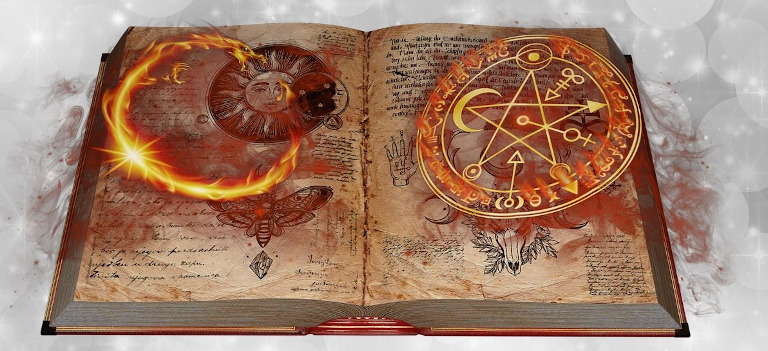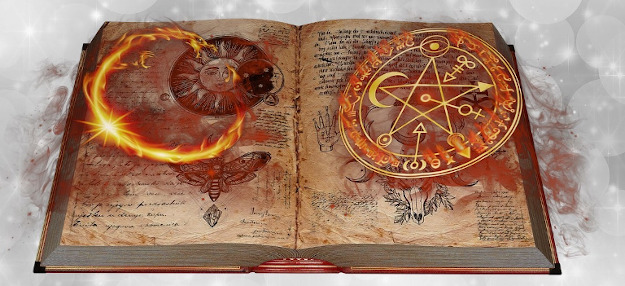
Before you begin writing in all the magic, psychic powers and other supernatural phenomena into your fantasy novel, take some time to think through these elements. Above all else, even though fantasy is by definition about the impossible, you want it all to seem as real and believable as possible to keep your readers engaged. This article will give you some guidance on how to do this in order to write a compelling, realistic fantasy novel.
About the Use of Magic in Your Fantasy Novel
A distinguishing feature of most fantasy novels is the presence of magic. Ask yourself the following questions to make sure you’re covering the bases that will be acceptable to your readers:
How Does Magic Work?
This doesn’t mean you have to spend a lot of time in your fantasy novel describing how the magic works, though you can if it makes sense to your story. But you need to know clearly for yourself how it works so you can write about it correctly. And if you want your magic system to stand out from the crowd, it needs to include some novel twists and features not found in other magic systems.
Why is Magic Important to the Story?
It’s not enough to include magic in your fantasy novel because it’s cool. It needs to serve a purpose. It needs to be important to one or more of your characters. It must play a role in moving the plot forward. Here are some additional questions that will help you get it right:
- How does magic emotionally affect your character(s)?
- In what ways does magic cause or contribute to conflict?
- If there were no magic in the story, would it still be the same?
- Would the characters still be the same if there weren’t magic?
- What is the “price” of using magic? If it’s unlimited and its practice has no discernable downsides for the characters using it, then it won’t seem very believable. If magic can’t immediately solve all the world’s problems, you need to know why. Can it be depleted? Does it require great effort that can’t be sustained? What are the dangers in using magic?
You want the magic in your fantasy novel to do more than just provide interesting action. It needs to be a central, driving force of the story for it to work. Never use it as a simple way for characters to solve their problems or get out of a sticky situation. Instead, let it backfire in some way to keep it interesting.
How Much of Magic’s Mechanics Will You Reveal?
If learning how to use magic is an important aspect of your fantasy novel, then it stands to reason you will go into a good level of detail around how it works. That would be a natural high level of detail about your magic system.
A lot of fantasy novels have a very basic system where readers understand that people learn magic by studying spells and practicing how to cast them, but never get very specific on why or how it works. For die-hard fantasy fans, that’s going to feel like a bit of a cop-out. It would be good to offer a richer level of detail about your magic system. The exception to this is when the “mysterious” element of magic is central to the story. In that case, the not-knowing of how and why it works is a part of the story, but you should still know the details of your magic system in case it needs to come up at some point in your story.
What you do with magic in your fantasy novel is up to you, but if you don’t think it all the way through, it will also feel that way to your readers.
Some Examples of Magic Systems
If you pay attention to the Harry Potter books by J. K. Rowling, you do learn quite a bit about the magic system, but not everything. For example, the only people who can do magic are those with the “magic gene” in their DNA. A Muggle could say all the right words and make all the right motions of a spell, but it won’t work. Magic in Rowling’s world comes from within the practitioner. It already exists inside and wizards just need to learn how to bring it out and control it. And their wands help them do exactly that, offering a way to focus their magic to get stronger and more precise results. Very advanced wizards can imbue objects with magical properties, and such enchanted artifacts always spice things up in a fantasy novel as they do in Rowling’s books.
In The Mists of Avalon by Marion Zimmer Bradley, you get an in-depth view of the magical education of Morgan le Fey, following her priestess training, becoming queen of the faeries, and right up through becoming a powerful sorceress and the role she played in Arthur’s demise. Rich details about the beliefs, spells and rituals that make up the magic system in this version of the world of Camelot is worth studying.
Magic in The Lord of the Rings by J.R.R. Tolkien is interesting in how limited it is, and how little is explained with any level of detail. The only obvious practitioners of magic in the typical way thought of in fantasy are Istari order of wizards. There are only five of them, and only three are presented in the books: Gandalf, Saruman, and Radagast. The elves and dwarves have a good deal of magic. The elves can do healing, create magical items (cloaks, rope, swords, etc.), control the flow of rivers, and so on. The dwarves can make magical weapons and armor, and scribing their moon-letters. Other instances of regular people learning to do magic is rare in Middle-Earth, and seems to mostly learn towards the dark arts rather than good magic.
Psychic Powers and Abilities
But you don’t need to limit yourself to only having magic in your fantasy novel. In fact, fantasy doesn’t need to include the typical kind of magic at all. Your fantasy novel could instead focus on all sorts of different psychic powers and abilities. These could also complement magic in a fantasy novel. If you’re interested in this approach, be sure to check out the List of Psychic Powers and Abilities on the Psychics 4 Today website to get good descriptions of 20 different psychic powers you might want to use in your fantasy novel.
A Word About Superheroes
While superheroes with their superpowers and costumes tend to be more the stuff of comic books and movies, superhero fiction is a literary subgenre of speculative fiction. Depending on how it’s handled, it can be a subgenre of either fantasy or science fiction. But there are relatively few novels written under the banner of superhero fiction.
Once you’ve developed a better picture of how magic will work and any other psychic or supernatural powers you want to build into your fantasy novel, you’ll be ready to figure out what kinds of monsters, creatures and other beings you want to include, which will be the subject of the next article!
Try tooleybook, the free tool created for writing books. It takes less than 30 seconds to create an account and start writing.
With tooleybook you can view timelines, chapter purpose, word count, track time and place, tag scenes, move and organize scenes and more...More Info



great points altogether, you just won a new reader.
Hi. I just noticed that your web site looks like it has a few code errors at the very top of your website’s page. I’m not sure if everybody is getting this same bugginess when browsing your site? I am employing a totally different browser than most people, referred to as Opera, so that is what might be causing it? I just wanted to make sure you know. Thanks for posting some huge postings and I’ll try to return back with a completely different browser to check things out!
I must say, as considerably as I enjoyed reading what you had to say, I couldnt help but lose interest after a while. Its as if you had a excellent grasp around the subject matter, but you forgot to include your readers. Perhaps you should think about this from far more than one angle. Or maybe you shouldnt generalise so much. Its better if you think about what others may have to say instead of just heading for a gut reaction to the topic. Think about adjusting your personal thought process and giving others who may read this the benefit of the doubt.
http://www.socjologia.xmc.pl